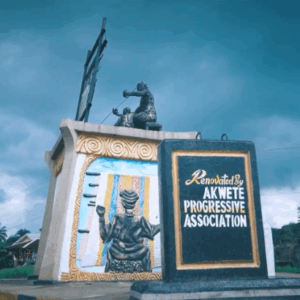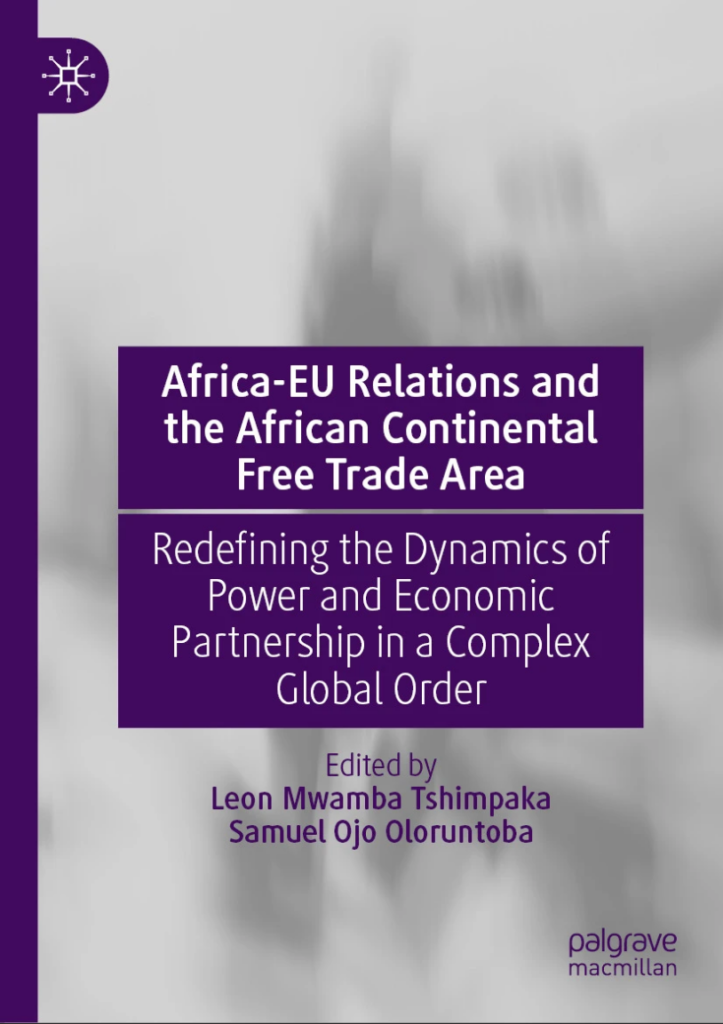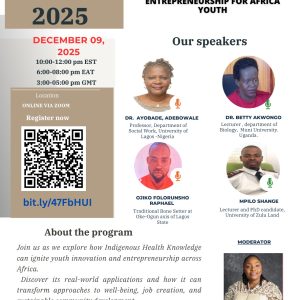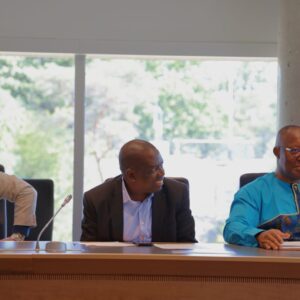
Akwete: Weaving Heritage, Empowering Generations
Indigenous Health and Well being: Opportunities for Jobs and Entrepreneurship for African Youth The Africa Indigenous Knowledge Research Network (AIKRN)
Editors: Leon Mwamba Tshimpaka, Samuel Ojo Oloruntoba
This book examines the establishment and implementation of the AfCFTA, which is the largest free trade area globally, covering 54 African countries. It explores how this initiative has the potential to reshape Africa-EU relations by promoting intra-African trade, economic integration, and diversification, as well as inter- regional trade. Both continents have the potential to serve as global actors in reshaping the global order in ways that can affect how multilateralism fosters inclusive development. However, whether this will happen would be a function of how the EU and AU define their interests and relationship.
Pages C1-C1
Leon Mwamba Tshimpaka
Samuel Ojo Oloruntoba
Leon Mwamba Tshimpaka is Senior Postdoctoral Research Fellow in the Centre for the Study of Governance Innovation (GovInn) and the SARChI Research Chair in the Political Economy of Migration in the SADC Region in the Department of Political Sciences of the University of Pretoria, South Africa.
Samuel Ojo Oloruntoba is Assistant Professor at the Institute of African Studies, Carleton University, Ottawa, Ontario, Canada and Honorary Professor at the Thabo Mbeki African School of Public and International Affairs, University of South Africa, where he was previously an Associate Professor.


Indigenous Health and Well being: Opportunities for Jobs and Entrepreneurship for African Youth The Africa Indigenous Knowledge Research Network (AIKRN)

Indigenous Health and Well being: Opportunities for Jobs and Entrepreneurship for African Youth The Africa Indigenous Knowledge Research Network (AIKRN)

Highlighting the Transformative Power of African Indigenous Knowledge Highlighting the Transformative Power of African Indigenous KnowledgeAt a time when many
The Africa Indigenous Knowledge Research Network was created to undertake research geared towards identifying, re-centering and harnessing Indigenous knowledge in Africa.
©2026 copyright africaindigenousresearch.com